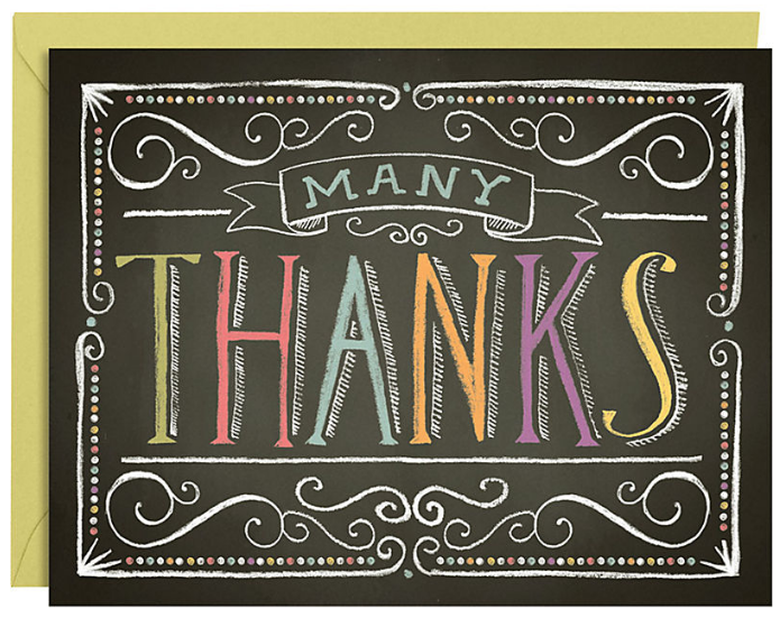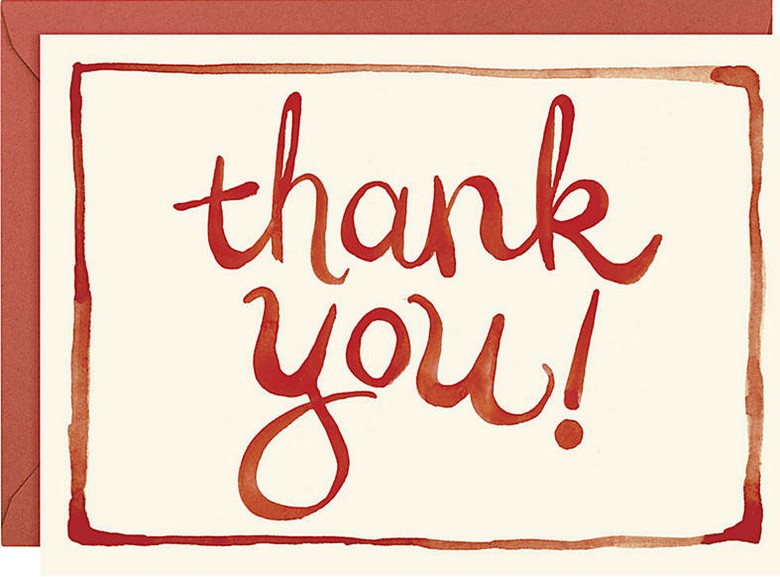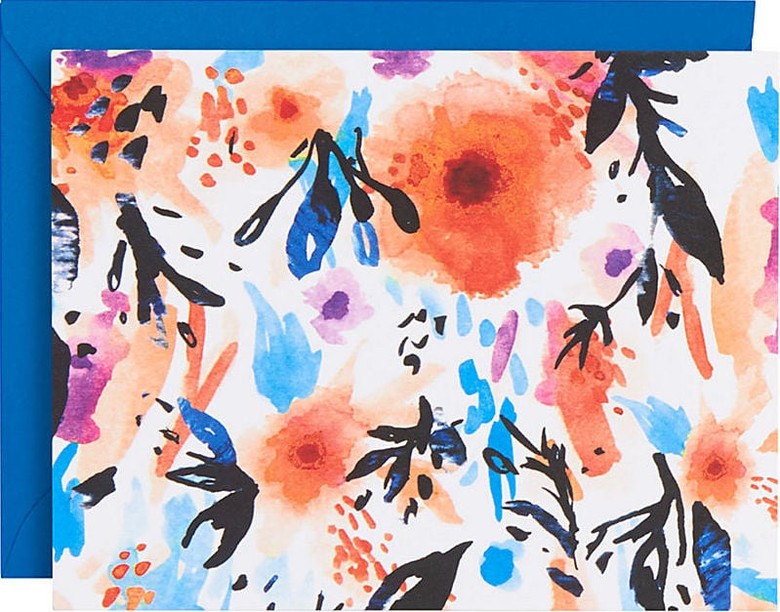
You know it’s important to send thank you notes and follow-up messages over the course of your career. It’s an expectation after an interview and it’s a nice thing when someone makes an introduction or serves as a reference.
But viewing your correspondence as an expectation or a nice thing—as some sort of requirement simply for the sake of etiquette is missing the point—and the value. While any note can save you from being judged for not sending one; it’s possible to do so much more.
All it takes is a few simple shifts to create something that’ll really resonate with the other person—so much so that he or she may even display it in on their desk. Here’s how:
1. Shift from Selling to Thanking
It’s become pretty common practice to use thanking someone as an excuse to sell yourself. Many follow-up notes could be translated to: Thanks for the interview. And in related news, here’s a recap of why you should hire me or Thanks so much for meeting with me—and here’s my resume and five reasons why you should pass it on to everyone you know.
And yes, there are times when this approach makes sense: like if you messed up an interview question, forgot to mention something compelling, or never got up the courage to make an actual ask during your networking meeting.
But to be memorable, you have to defy expectations. If everyone else is sending two line of thanks and six lines of self-promotion, reverse the formula. Why are you actually thanking this person? Along with “his time” did he also give you a solid piece of advice, offer to help you, or share his experience? Take time to genuinely discuss what the other person said (or did) that stuck with you. That, in and of itself, is a way to display your skills.
2. Shift from Email to Handwritten
Email is valuable for the sake of timeliness, and I’m all for using it to thank a hiring manager within 24 hours of your interview, or to fill someone in ASAP on meeting his mutual contact. However, despite receiving lovely emails over the years, I’ve never printed one out and physically held onto it.
Handwritten notes lend themselves to being kept—especially if they’re on quality stationary. It can add a nice pop of color to someone’s desk or bulletin board, and the fact that snail mail is such a rarity these days is another reason people will be inclined to keep it.
To make it easy on yourself, buy a set of either “Thank You” or “Just a Note” cards and a pack of forever stamps (you can get the latter at checkout at many grocery stores or drug stores—there’s no need to make a special trip to the post office). If you have all the materials on hand, it’s simply one more step. Note: You’ll still want to type the draft on your computer (so you can easily delete and rearrange), but then it’ll only take you five minutes to write it out and address the envelope.
Don’t know your networking contact’s address? You can mail it to their attention c/o their company.
3. Shift From Soon After to Later On
Or better yet, both.
Too often people only correspond immediately after the fact. You follow up right after the interview or meeting or to ask someone for a reference and that’s that (unless you need something at a later point). While you don’t intend any harm, this approach can make people feel used.
Most of the notes I’ve kept from people have come after some time has passed. For example, from fellowship applicants I interviewed who wrote to me during or after their fellowship year to say what a great experience it was. Five years later, I still have two of those notes.
Think about it: People like hearing about their impact and they like knowing you reached out because you wanted to (not because you had to). So, along with telling someone you appreciate the interview or got the job or made a connection in the short-term, if you reach out six months later and share how well you’re doing—and that you remember that person being a part of what got you there—it’ll mean a lot.
There are times when sending a message is absolutely necessary to solidify a relationship or your chances of moving forward in your job search. But if you stop seeing notes as a to-do list item and start seeing them as a way to make someone else’s day, you’ll be a lot more likely to write one someone will actually want to keep. It’s the ultimate way to passively network, because every time she sees it, she’ll remember what a great person you are. What could be better than that?


